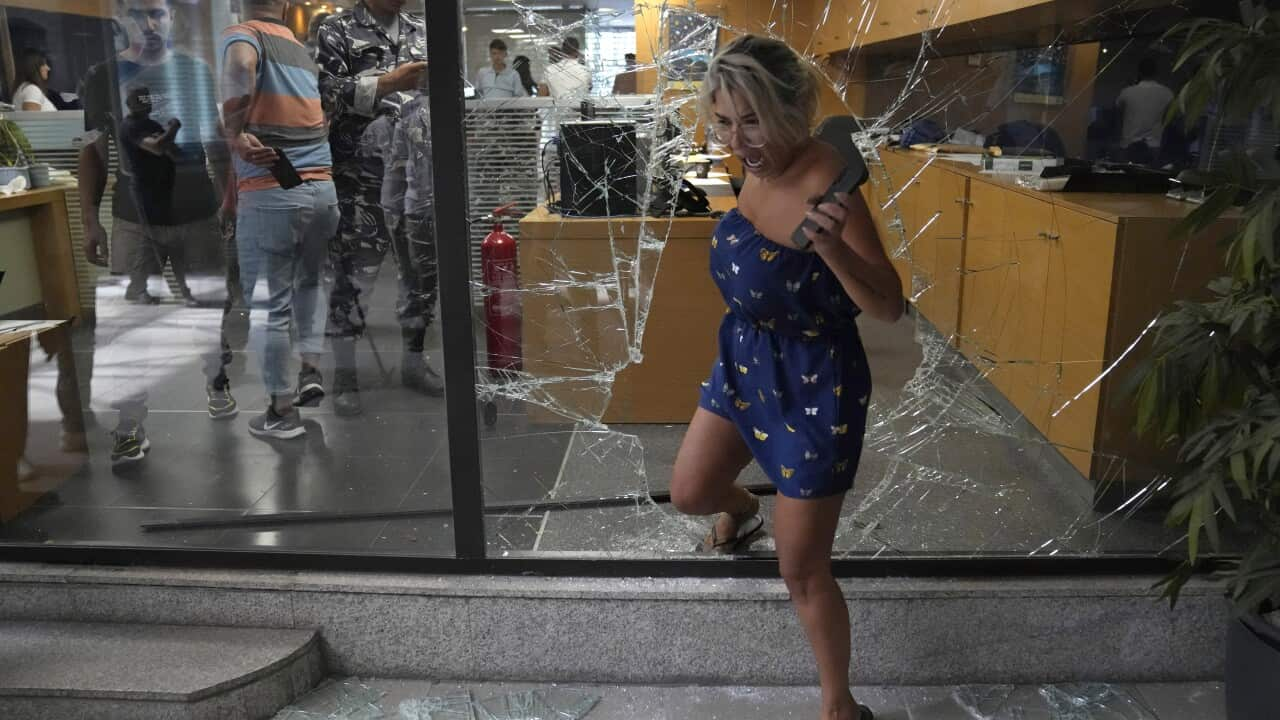Key Points
- A Lebanese woman held up a Beirut bank on Wednesday and walked out with US$13,000 ($19,300) .
- Salli Hafiz streamed a live video of her raid, in which she could be heard yelling, with the support of activists.
A Lebanese woman held up a Beirut bank on Wednesday and walked out with US$13,000 ($19,300) to fund what she said was hospital treatment for her ill sister.
It is the latest in a string of heists as Lebanese depositors, whose savings have been devalued and trapped in banks for almost three years, have taken matters into their own hands.
Salli Hafiz streamed a live video of her raid, in which she could be heard yelling, with the support of activists, at employees to release a sum of money while entrances to the bank were sealed.
"I am Salli Hafiz, I came today ... to take the deposits of my sister who is dying in hospital," she said in the video.
"I did not come to kill anyone or to start a fire... I came to claim my rights."
The woman has been described as a "بطلة" - translated to "heroine" - on social media in Lebanon, where many are desperate to access their savings that have been frozen by the banks amid economic turmoil in the country.
In an interview with local media outlet Al-Jadeed, Ms Hafiz said her family had sold most of their house furnishings to make ends meet and apologised to customers and staff who she scared during the hold-up.
"I had no other choice but to get my money back," she said.
An AFP correspondent at the scene said gasoline was poured inside the bank during the heist and a gun was later found on the ground, although it was not immediately clear if it was real.

A Lebanese depositor holds banknotes inside a Blom Bank branch in Beirut. Source: AAP / Wael Hamzeh
The heist lasted under an hour, with no casualties reported.
It's the second bank heist in a month after another Lebanese local received widespread praise after he stormed a Beirut bank with a rifle, demanding some of his US$200,000 ($298,000) in frozen savings to pay hospital bills for his sick father.
He was detained but swiftly released.
In January, after he was told he could not withdraw his foreign currency savings, a source at the lender said.
Local media reported that the customer was eventually given some of his savings and surrendered to security forces.
Lebanon has been battered by its worst-ever economic crisis since 2019. The local currency has lost more than 90 per cent of its value on the black market, while poverty and unemployment have soared.


